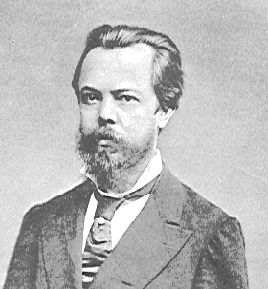| 1843 |
Born on 16th July in Lakócsa, county Somogy,
Hungary, Europe |
| 1865 |
Obtains his degree in medicine at the University
of Budapest |
| 1869 |
Is qualified as privatdocent in the University
of Budapest |
| 1870 |
Obtains scholarships for study trips in Germany
and England |
| 1872 |
Is appointed professor of hygiene in the University
of Kolozsvár |
| 1873 |
His book: “Public health in England, with regard
to the situation of medicine, health regulations, forensic medicine and
the conditions in Hungary” is published and awarded with a 200 gold coins
prize of the Hungarian Academy of Sciences |
| 1874 |
Is appointed professor of public health in the
University of Budapest |
| 1876 |
Act on Public Health (No. 1876:14) |
| 1882 |
Further, longer study trip in England, France, Belgium, the Netherlands,
Germany, Switzerland, Italy, Greece and Turkey
Is awarded by the great gold medal of Empress Augusta Victoria for his
instruments serving for experiments in the field of hygiene, presented
at the Medical Exhibition, Berlin
Starts training courses for school doctors during the summer holidays
|
| 1883 |
Is elected associate of the Hungarian Academy
of Sciences |
| 1884 |
Designs a program for the education of school
doctors and teachers of health |
| 1885 |
Start of his researches about the bactericidal property of blood
Is elected member of the Hungarian Academy of Sciences
|
| 1886 |
Foundation of the National Society of Public
Health (Secretary General of the society till 1893) |
| 1889–1891 |
Gets appointed dean of the Faculty of Medicine |
| 1891 |
Is elected honorary doctor of the University
of Cambridge |
| 1893 |
Writes the chapter dealing with the hygiene of
soil in the book of Theodor Weil “Handbuch der Hygiene” |
| 1894 |
Vice-chairman of the International Public Health and Demographic Congress,
Budapest
Gets decorated with the Order of the Iron Crown by HM the King
|
| 1894–1895 |
Is elected Rector Magnificus of the University
of Budapest |
| 1895 |
Is elected an associate of the Italian Society
of Hygiene |
| 1896 |
Is elected a honorary member of the Helsinki
Society of Hygiene |
| 1897 |
Becomes honorary/ordinary member of the following
societies:
Gesellschaft für öffentliche Gesundheitspflege (Berlin)
Verein für öffentliche Gesundheitspflege (Frankfurt a.M.)
Sanitary Institute of Great Britain (London)
Society of Medical Officers of Health (London)
Società d’Igiene Fiorentina
Reale Società Italiana d’Igiene (Milano)
Association Internationale pour le Progrès de l’Hygiène (Bruxelles)
Sociedad Espagnol de Higiene (Madrid)
Finnish Society of Hygiene (Helsinki)
Société Royale de Médicine Publique (Bruxelles)
Société Française d’Hygiène (Paris)
Is rewarded by honorary membership and the great golden medal by the Academy
of Naples
Is elected honorary member to the Royal Academy of Belgium
|
| 1900 |
Gets decorated with the Order of Saint Sava |
| 1901 |
Is recommended by the Hungarian Academy of Sciences
for the very first Nobel prize in medicine but in the competition he cannot
take part any more |
| 1901 |
Dies unexpectedly on 20th March, at the age of
58 |
Even 100 years later, the up-to-dateness and foresight of József
Fodor is not only significant but also much-to-be-admired.
 The
founder of Hungarian public health, one of the best known European hygienists
of his age was born 155 years ago.
The
founder of Hungarian public health, one of the best known European hygienists
of his age was born 155 years ago.